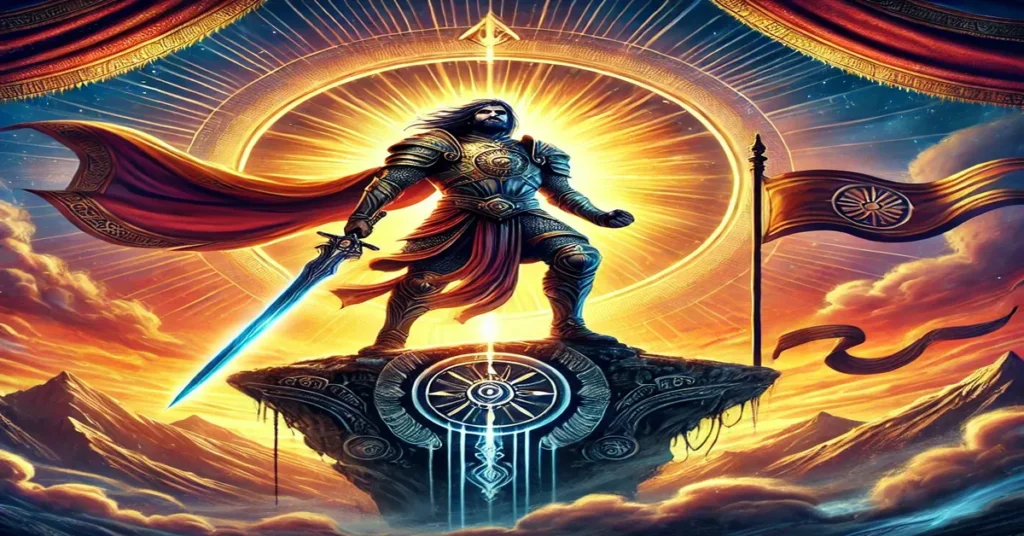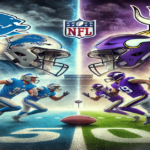“Kalli the Champion” is a fascinating figure whose tale is steeped in legend, inspiration, and mystery. Whether Kalli is a mythical hero, a symbol of perseverance, or a central character in a modern narrative, the title “Champion” implies a figure of immense strength, courage, and determination. This article delves deep into the character of Kalli, exploring their origins, symbolic meaning, influence, and possible representations across different contexts—whether literary, mythical, or metaphorical.
Origins of Kalli the Champion
The story of “Kalli the Champion” could be derived from various interpretations, depending on the cultural, historical, or narrative framework. Let’s explore a few possible origins:
1. Mythical and Legendary Roots
In many mythologies, champions emerge during times of great struggle, often bestowed with extraordinary abilities or virtues. If Kalli is a mythical figure, their story might revolve around:
- Heroic Deeds: Defeating formidable foes or overcoming insurmountable odds.
- Divine Favor: Being chosen or guided by deities to fulfill a great mission.
- Moral Virtue: Embodying qualities such as justice, courage, or selflessness.
For instance:
- In Greek mythology, a “champion” could be a demigod, such as Perseus or Hercules, undertaking perilous quests.
- In Norse mythology, champions like Thor represent strength and protection.
If Kalli emerges from a similar mythical background, their narrative might be rich in allegory and symbolism.
2. Historical Interpretation
Kalli might represent a real-life historical figure celebrated for their contributions to society or their victories on the battlefield. Such champions often rise from humble beginnings, embodying the virtues of resilience and leadership.
Examples:
- A revolutionary leader who champions the cause of their people.
- A warrior who defends their homeland against invaders.
If rooted in history, Kalli’s story would highlight themes of struggle, sacrifice, and triumph.
3. Literary or Modern Origin
In modern narratives, “Kalli the Champion” might be a protagonist in a novel, game, or film. Their journey could focus on personal growth, overcoming adversities, or battling external forces, whether literal or metaphorical.
Modern examples include:
- Characters in epic fantasy novels like Frodo in The Lord of the Rings.
- Protagonists in video games, such as The Champion in The Legend of Zelda: Breath of the Wild.
Symbolism of Kalli the Champion
Regardless of their origin, “Kalli the Champion” likely symbolizes certain universal themes. These include:
1. Perseverance
Champions are often defined by their ability to endure hardship. Kalli could symbolize the resilience needed to overcome life’s challenges.
2. Justice
In many stories, champions fight for justice, defending the weak and righting wrongs. Kalli might embody this ideal, representing fairness and equity.
3. Transformation
Champions often undergo significant personal growth during their journeys. Kalli might symbolize the transformative power of struggle, becoming stronger, wiser, and more compassionate through their experiences.
4. Unity
Many champions rally others to their cause, uniting people with a shared purpose. Kalli might represent the ability to bring together individuals or communities.
Kalli in Mythical Contexts
If we examine Kalli as a mythical champion, several possibilities arise regarding their story and attributes:
1. The Quest
Mythical champions often embark on a quest, a journey that tests their strength, wisdom, and character. Kalli’s quest might involve:
- Retrieving a sacred artifact.
- Rescuing a loved one or their homeland.
- Battling a powerful adversary.
2. Attributes of a Champion
Kalli might possess unique attributes or powers, such as:
- Physical Strength: Exceptional combat skills or superhuman strength.
- Wisdom: Strategic thinking or deep insight.
- Magical Abilities: Powers granted by a deity or through training.
3. Allies and Mentors
No champion’s journey is undertaken alone. Kalli might be aided by:
- A wise mentor who provides guidance.
- Loyal companions who offer support.
- A mystical entity, such as a guardian spirit or magical creature.
Kalli in Modern Storytelling
In modern contexts, “Kalli the Champion” could serve as the protagonist in various genres, such as fantasy, science fiction, or contemporary drama.
1. As a Fantasy Hero
If Kalli is a character in a fantasy setting, their story might revolve around:
- A battle against evil forces threatening their world.
- The discovery of their heritage as a chosen hero.
- A journey to unite warring factions.
2. As a Sci-Fi Protagonist
In a science fiction narrative, Kalli might:
- Be a warrior fighting for humanity’s survival in a dystopian future.
- Possess advanced technology or alien abilities that make them a unique champion.
- Lead a rebellion against oppressive forces.
3. As a Relatable Modern Hero
In a more realistic setting, Kalli could be:
- A sports champion overcoming personal and societal obstacles to achieve greatness.
- A social activist fighting for a cause they believe in.
- An everyday individual who becomes a hero through acts of courage and kindness.
Themes in Kalli’s Story
Certain themes are likely to recur in any narrative involving “Kalli the Champion.” These include:
1. Redemption
Many champions carry a burden of past mistakes or failures, seeking redemption through their actions. Kalli might start as a flawed character who grows into their role as a champion.
2. Sacrifice
Champions often sacrifice their comfort, safety, or even their lives for the greater good. Kalli might face difficult choices that test their commitment to their cause.
3. Legacy
The story of a champion often ends with their legacy—how their actions shape the world and inspire future generations. Kalli might leave behind a lasting impact, ensuring their story is remembered.
The Impact of Kalli the Champion
Regardless of the specific narrative, the story of Kalli the Champion would resonate deeply with audiences. Here’s why:
1. Universal Appeal
Stories of champions appeal to universal human experiences, such as striving for greatness, overcoming adversity, and finding purpose.
2. Inspirational Value
Kalli’s journey would inspire audiences to confront their own challenges with courage and determination.
3. Relatability
Whether depicted as a mythical hero or a modern-day protagonist, Kalli’s struggles and triumphs would reflect the complexities of real-life experiences.
FAQs
1. Who is Kalli the Champion?
Kalli the Champion could represent a mythical hero, a historical figure, or a modern protagonist celebrated for their courage, perseverance, and triumph over adversity.
2. What does Kalli symbolize?
Kalli symbolizes universal themes such as perseverance, justice, transformation, and unity. Their story likely highlights the values of courage and resilience.
3. What kind of stories feature champions like Kalli?
Champions like Kalli appear in various genres, including mythology, fantasy, science fiction, and contemporary drama. Their stories often involve quests, battles, and personal growth.
4. Is Kalli a mythical or modern character?
The interpretation of Kalli depends on the context. They could be a mythical figure, a historical champion, or a protagonist in a modern narrative.
5. What makes a champion’s story compelling?
A champion’s story is compelling because it reflects universal human experiences, such as overcoming adversity, seeking justice, and striving for personal growth.
6. How can Kalli inspire audiences?
Kalli’s journey inspires audiences by showing the power of determination, courage, and selflessness in overcoming life’s challenges.






